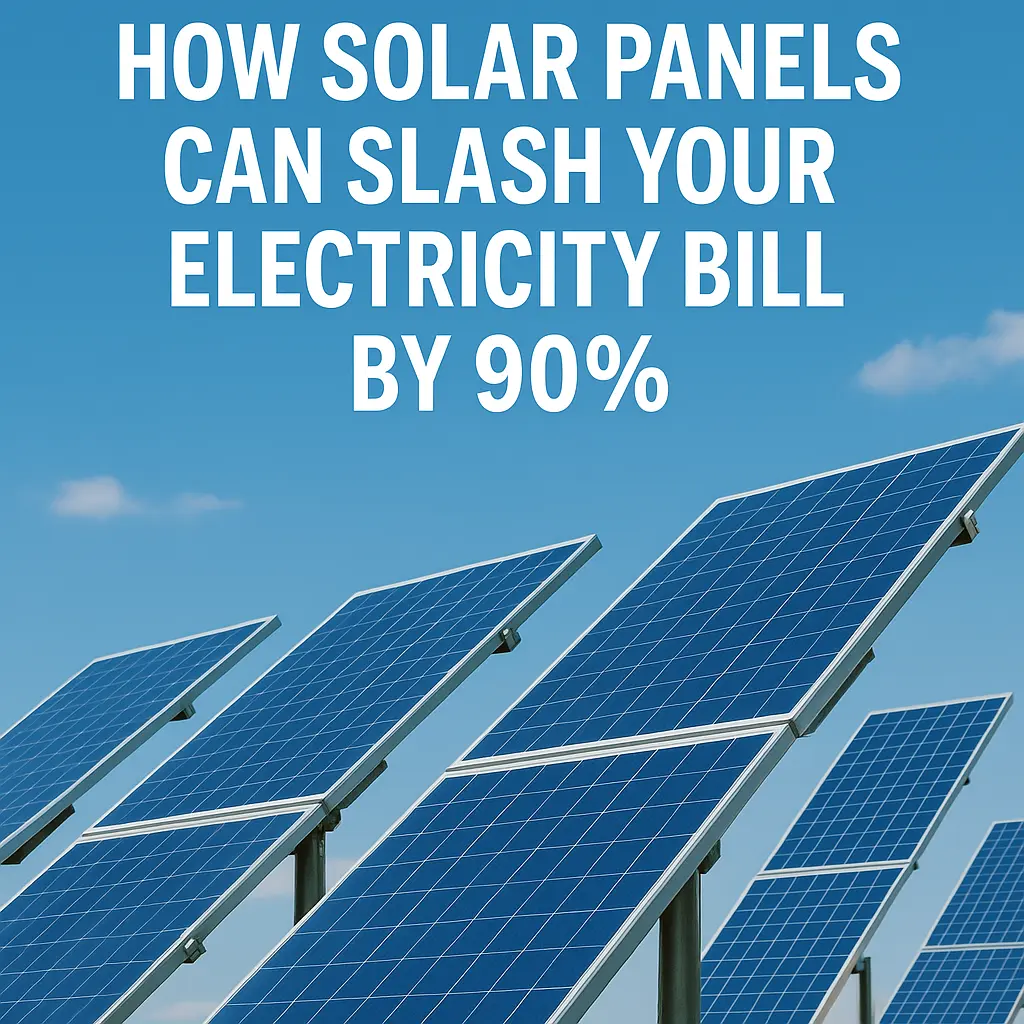
In an age where energy prices are escalating rapidly, more homeowners and businesses are turning to solar panels to reduce electricity bills significantly. The reality of renewable energy is no longer a distant vision; it is a present-day solution capable of slashing energy expenses by up to 90%. If you’re wondering how much do solar panels save, the numbers are compelling — but understanding the factors that influence these savings is crucial.
Understanding How Solar Panels Reduce Electricity Bill
When people inquire whether do solar panels lower electric bill, the answer is a resounding yes. Solar panels capture sunlight and convert it into usable electricity, powering homes and businesses while reducing dependence on the national grid. This reduction in grid consumption translates directly into lower energy bills.
Moreover, in countries like Pakistan, where sunlight is abundant, the potential for solar panels cut electricity costs is immense. Whether it’s a residential property in Lahore or a commercial complex in Karachi, harnessing solar energy ensures steady, predictable savings.
The Science of Solar Energy Savings
The core principle behind solar energy is the photovoltaic effect — where solar cells absorb sunlight and convert it into electricity. This electricity is either used immediately or stored in batteries for later use. By installing solar systems, users offset their reliance on conventional grid electricity, thus reducing their utility costs.
Additionally, tools like a solar energy savings calculator allow potential adopters to estimate their annual savings accurately. These calculators factor in geographical location, roof size, energy consumption patterns, and available sunlight hours to project financial benefits.
Can Solar Panels Eliminate Electric Bill Entirely?
A frequent query among prospective users is can solar panels eliminate electric bill altogether. Theoretically, with a well-sized and optimized system, it is entirely feasible. Systems that generate surplus energy can often supply more than 100% of a household’s requirements, allowing owners to benefit from net metering — where excess power is fed back into the grid in exchange for credits or payments.
However, in practical terms, completely erasing the electric bill depends on:
- The size and capacity of the solar installation
- Energy consumption habits
- Regional solar policies and incentives
- Battery storage capabilities
For instance, in Pakistan’s urban areas, where load shedding and power outages are common, combining solar panels with battery storage can ensure uninterrupted power while significantly minimizing monthly bills.
How to Save 90% on Electricity with Solar Panels
For those keen on learning how to save 90% on electricity with solar, the following strategies are key:
1. Optimal System Sizing
Ensure your solar installation matches your energy usage patterns. An undersized system will fail to cover all your needs, while an oversized system might lead to inefficiencies unless net metering is available.
2. Invest in Quality Equipment
Choosing the best solar panels for maximum savings is essential. Premium solar panels offer higher efficiency, durability, and longer warranties. They might be pricier upfront but deliver superior returns over time.
3. Leverage Battery Storage
Batteries store excess energy generated during peak sunlight hours. This stored energy can be used during evenings or power outages, maximizing the use of self-generated electricity and reducing grid dependence.
4. Regular Maintenance
Routine maintenance ensures the system operates at peak efficiency. Cleaning the panels, checking for wiring issues, and monitoring performance metrics can help sustain high output levels.
5. Explore Government Incentives
Many regions, including parts of Pakistan, offer subsidies, tax credits, and incentives to promote solar adoption. These benefits can significantly lower the initial investment, enhancing the overall return on investment (ROI).
Real Savings from Solar Panels: What to Expect
Understanding real savings from solar panels requires analyzing long-term performance. While the initial setup cost might seem high, most systems pay for themselves within 4-7 years, depending on usage and local energy tariffs. After breakeven, users enjoy nearly free electricity for the lifespan of the system, typically 25-30 years.
In financial terms:
- A medium-sized residential solar system in Pakistan can save homeowners upwards of PKR 200,000 annually.
- Commercial setups can experience savings scaling into millions, depending on scale and consumption.
These figures don’t even account for the environmental benefits and energy independence, which are invaluable in an energy-insecure world.
Solar Panels vs Grid Electricity Cost: A Comparative View
When evaluating solar panels vs grid electricity cost, the contrasts are stark. Grid electricity prices in Pakistan have surged over the years, influenced by fuel price volatility and infrastructure challenges. Conversely, solar energy represents a one-time investment with negligible operational costs.
| Parameter | Solar Panels | Grid Electricity |
|---|---|---|
| Initial Cost | High (one-time) | Low (recurring) |
| Operational Cost | Very Low | Increasing |
| Price Stability | Stable (free sun) | Volatile |
| Environmental Impact | Minimal | High |
| ROI | 4-7 Years | N/A |
| Lifespan | 25-30 Years | Continuous |
This comparison clearly demonstrates the long-term financial prudence of going solar.
Best Solar Panels for Maximum Savings
Selecting the best solar panels for maximum savings requires careful consideration. Among the top-rated brands globally are:
- SunPower: Known for the highest efficiency rates.
- LG Solar: Durable and high-performing.
- JA Solar and Trina Solar: Cost-effective options with solid performance, widely available in Pakistan.
Pairing these with smart inverters and battery systems like Tesla Powerwall or Huawei’s FusionSolar further amplifies savings.
Common Questions About Solar Panel ROI and Savings
How Fast Do Solar Panels Pay for Themselves?
Typically, solar panels pay for themselves within 4-7 years. This varies depending on installation costs, local electricity prices, and available incentives.
Do Solar Panels Work During Power Outages?
Standard grid-tied systems shut down during outages for safety reasons. However, when paired with battery storage, solar panels can continue supplying power even during blackouts.
Are Solar Savings Taxable?
In some countries, incentives or net metering credits might be taxable. However, in Pakistan, current policies focus on promoting solar with minimal taxation on savings.
Can Solar Increase Property Value?
Absolutely. Homes equipped with solar installations often see higher property values and better resale prospects, owing to the promise of lower operational costs.
Final Thoughts: Solar Energy as a Sustainable Future
Switching to solar energy isn’t just an economic decision; it’s a commitment to sustainability. By leveraging solar panels to reduce electricity bills, households and businesses contribute to a greener planet while insulating themselves from rising energy costs.
In Pakistan’s context, where power shortages and tariff hikes are frequent, investing in solar is both a financially sound and socially responsible choice. The convergence of technology, affordability, and policy support makes now the perfect time to adopt solar solutions.
👉 For continuous updates on technology, sustainability, and energy solutions, stay connected with GloballyUpdates — empowering Pakistan with the latest news and insights.

